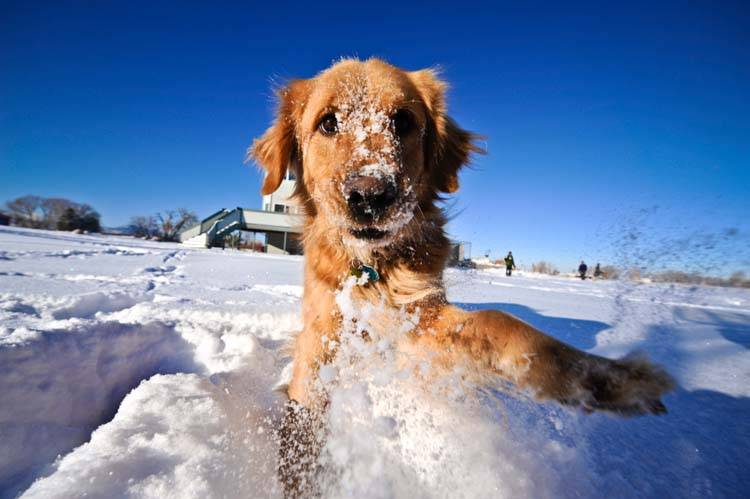What You Should Know About Frostbite in Dogs
By Vesna Ban-Smedberg, RVT
As snow covers the ground, we should pay special attention to our dogs. That wonderful white scenery holds a cold truth: dogs get frostbite.
Frostbite is tissue damage caused by exposure to freezing temperatures and it may take a couple of days to see the full damage of frostbite. Short hair, wet fur, diabetes and a small size are just a few contributing factors for dogs. The body parts on dogs that are most commonly affected are the ears, tail, scrotum and nipples. Interestingly, foot pads are rarely frostbitten. Explanations for this include the arrangement of blood vessels and specialized epithelial cells in foot pads.
Three Stages of Frostbite
The first stage is characterized by pale to gray skin that may be cold or hard to the touch. When the skin warms up, it will have a reddish appearance. The second stage is marked by an appearance of blisters. The third stage is the most serious. The skin turns dark or black during the next couple of days and it may start sloughing. The tissue is dead and it must be treated to prevent serious infections. In extreme cases, amputation of a limb may be required.
Keep in mind, when your dog is frostbitten, her body temperature may also be affected. Hypothermia (low body temperature) requires immediate attention.
How to Treat Frostbite
Get your dog inside immediately. If you’re transporting your dog, make sure you don’t turn the heater up too high. Cold to gradual warm temperature is much more appropriate. Do not rub your dog. Even though you need to warm up your pet, rubbing can cause further damage to the tissue and it may release accumulated toxins. Instead, submerge the affected area in lukewarm water (about 100 degrees F) for about 20 minutes.
Pat the area dry and prevent your dog from licking or scratching. As frostbite is very painful, you need to contact your veterinarian for pain medication and, if required, antibiotics. Keep a close eye on the frostbite as the true damage may not appear for days to follow.
Frostbite Prevention
Certain breeds, such as Huskies and Malamutes, are very well adapted to cold weather and thrive in it. They have a double coat and snowshoes, which is hair between their toes and can withstand temperatures as low as -60 degrees F. How about the rest of the breeds? Keep your dog inside where she can adapt to a leisurely lifestyle, in which household heat is common.
If you’re going for a walk, you may want to consider booties to protect your dog’s paws from the cold and blisters. The veterinary assistant at your hospital can show you how to fit your dog for booties. A coat or a jacket may not be a bad idea either—and your pet will look fashionable while warm. With the proper precautions and preparation, you and your dog can enjoy a wonderful winter.





